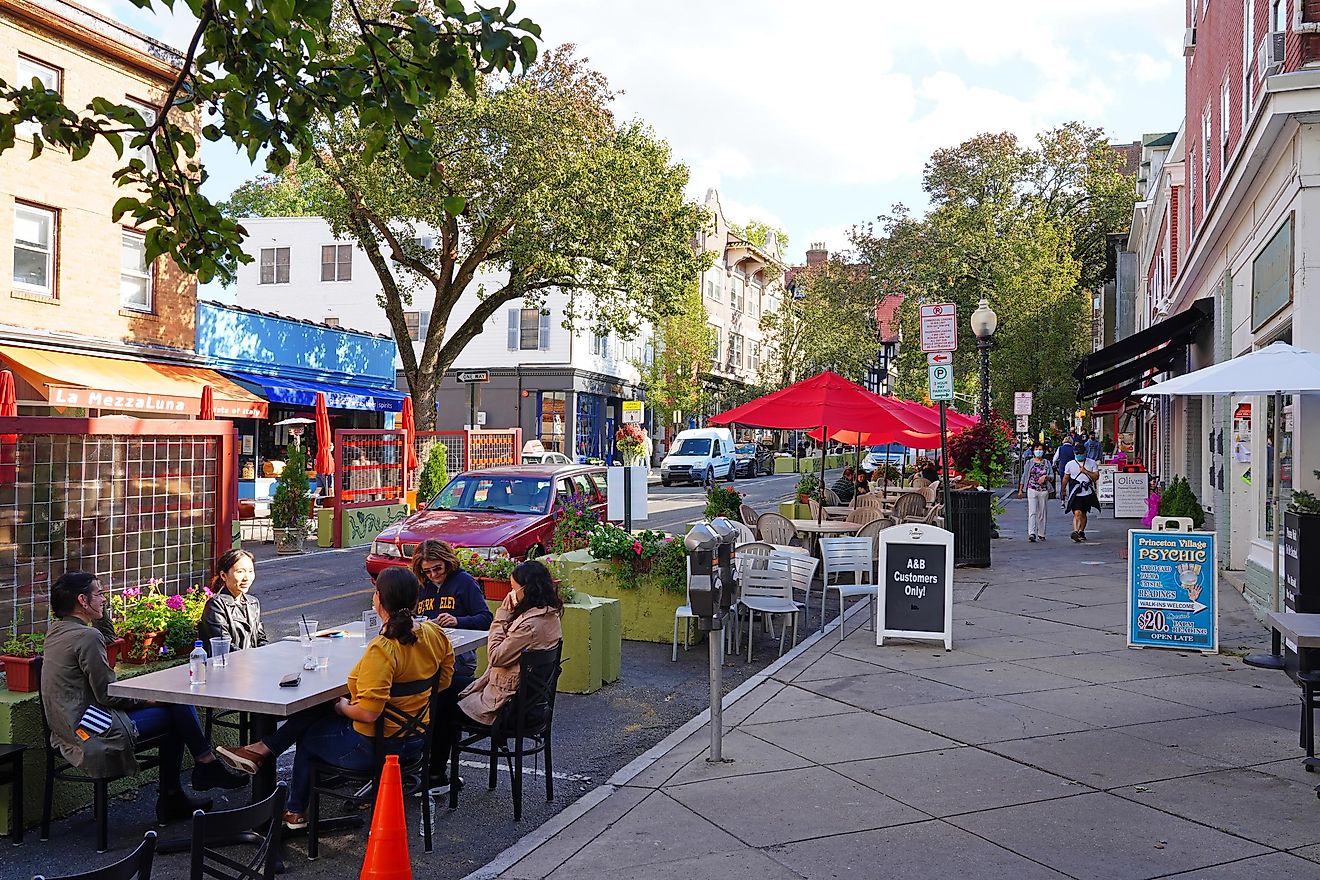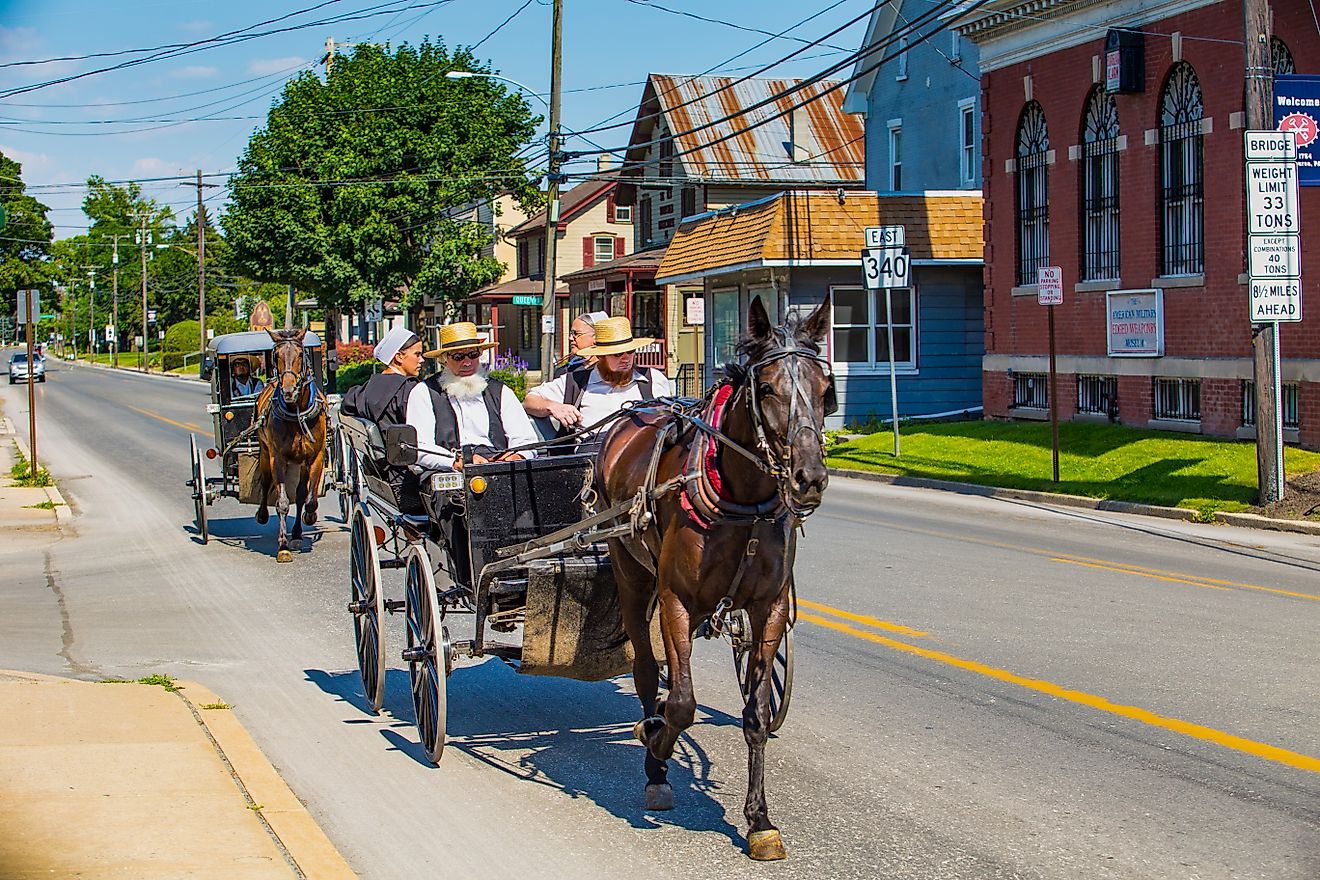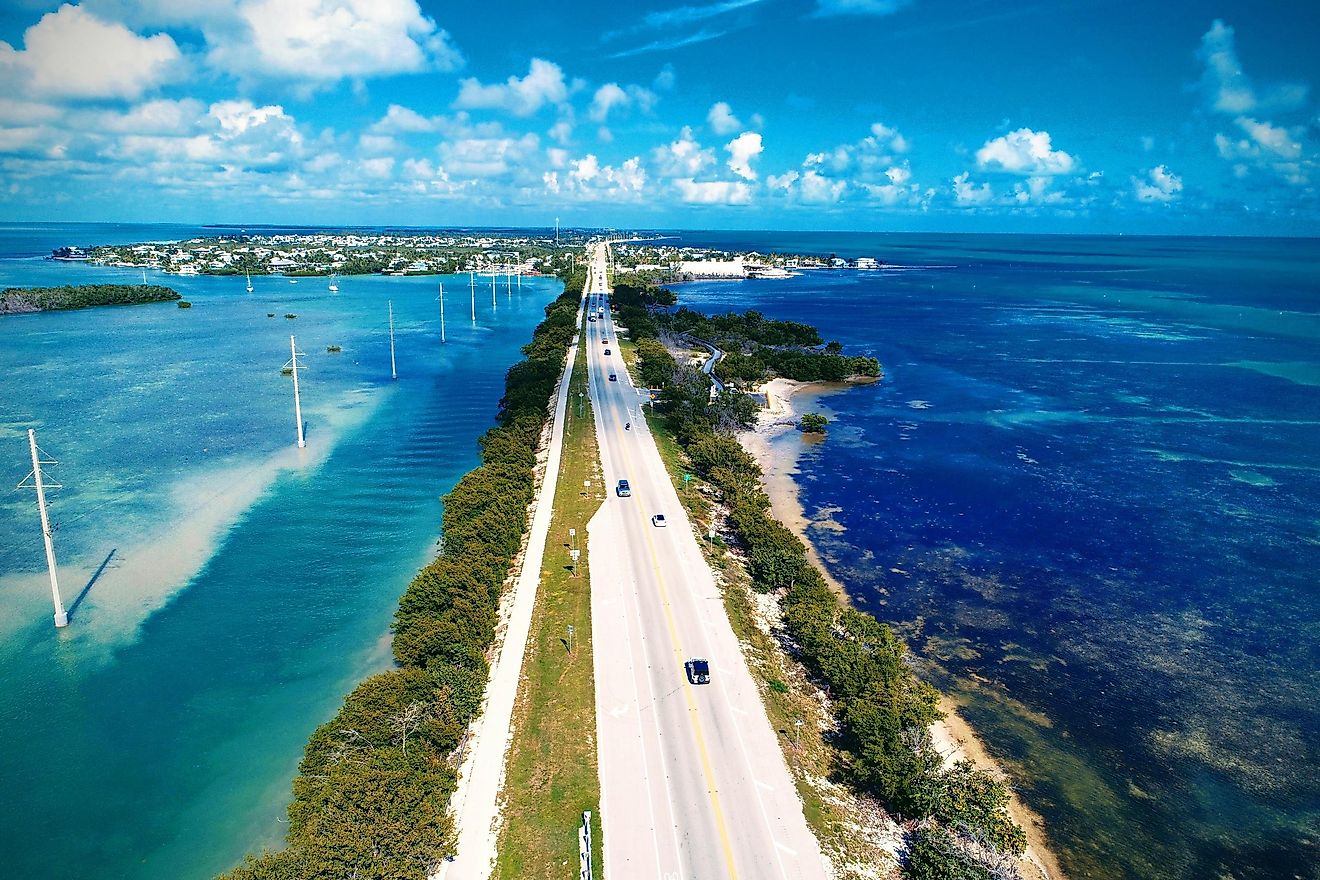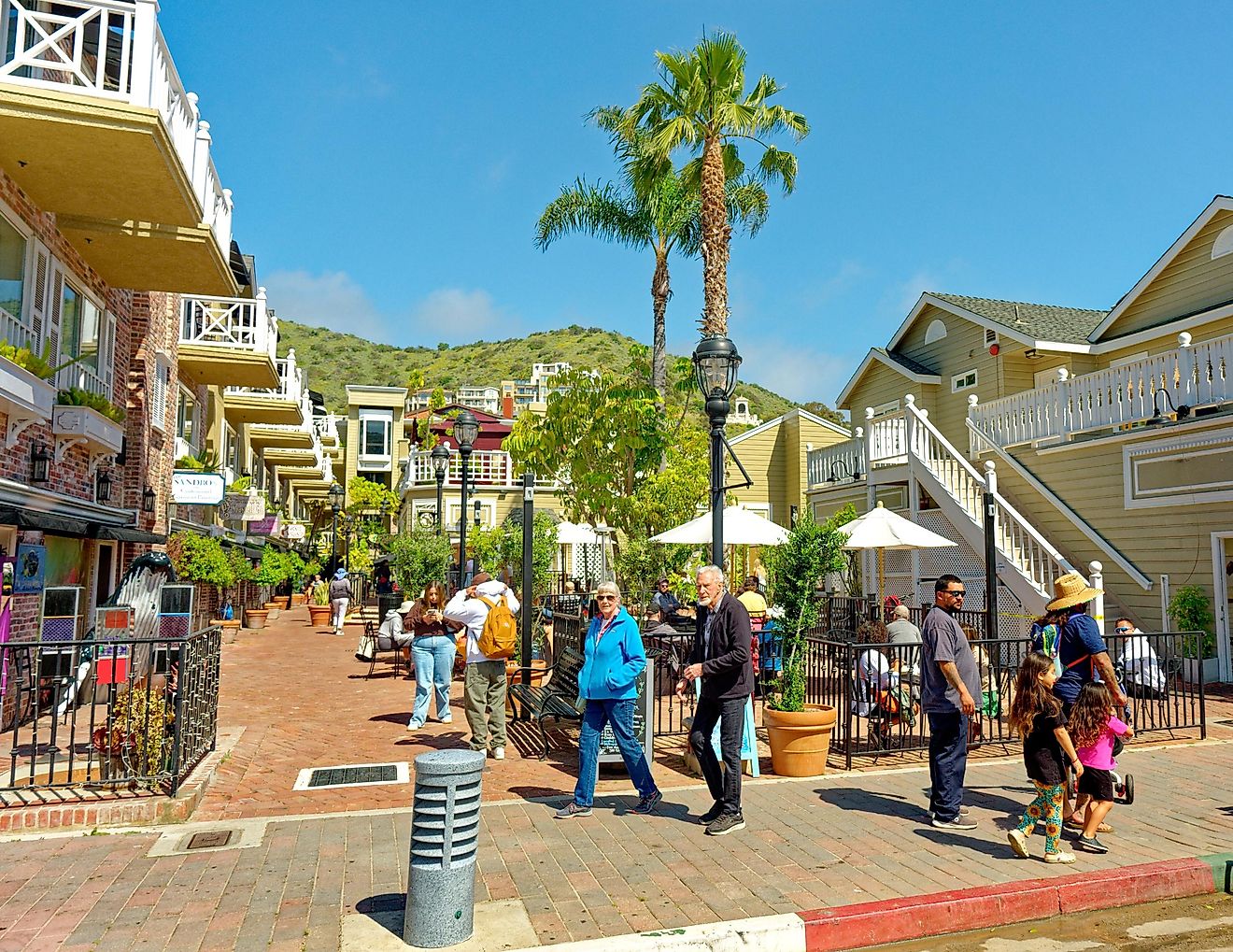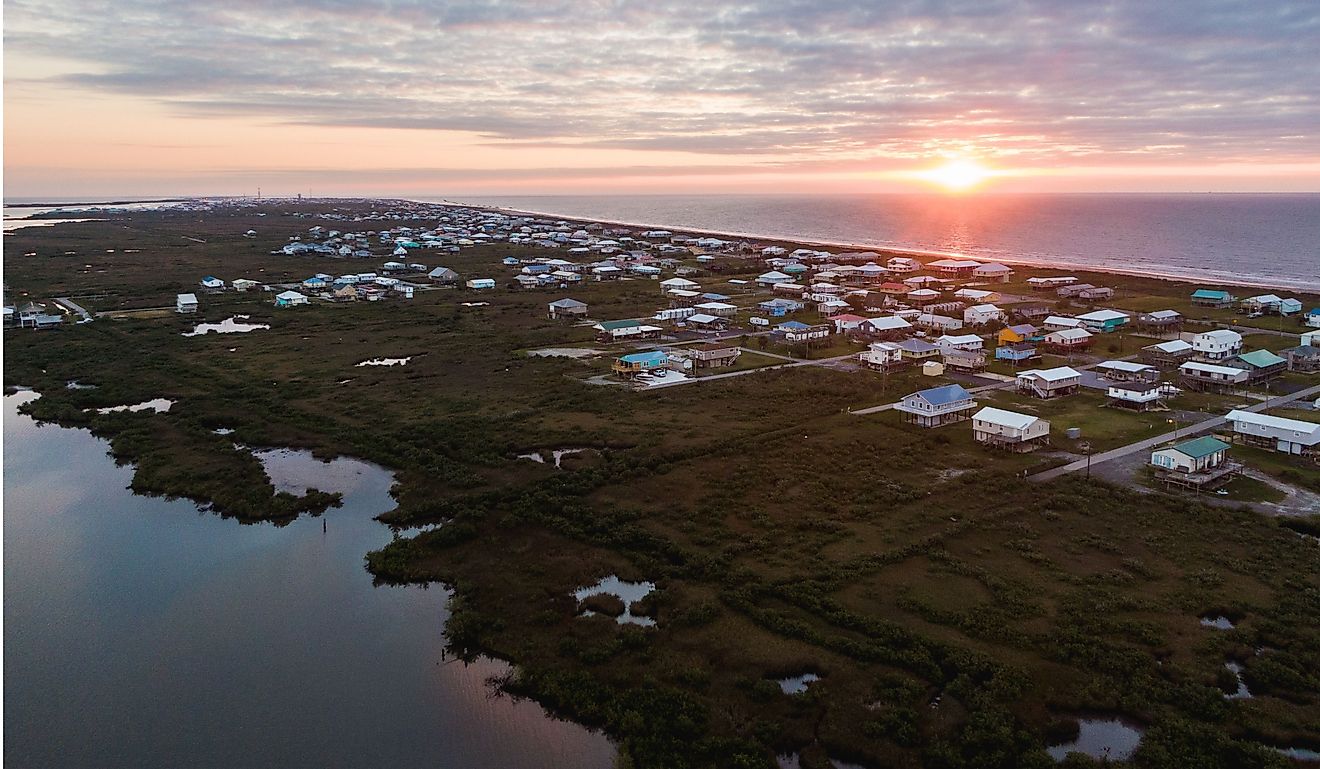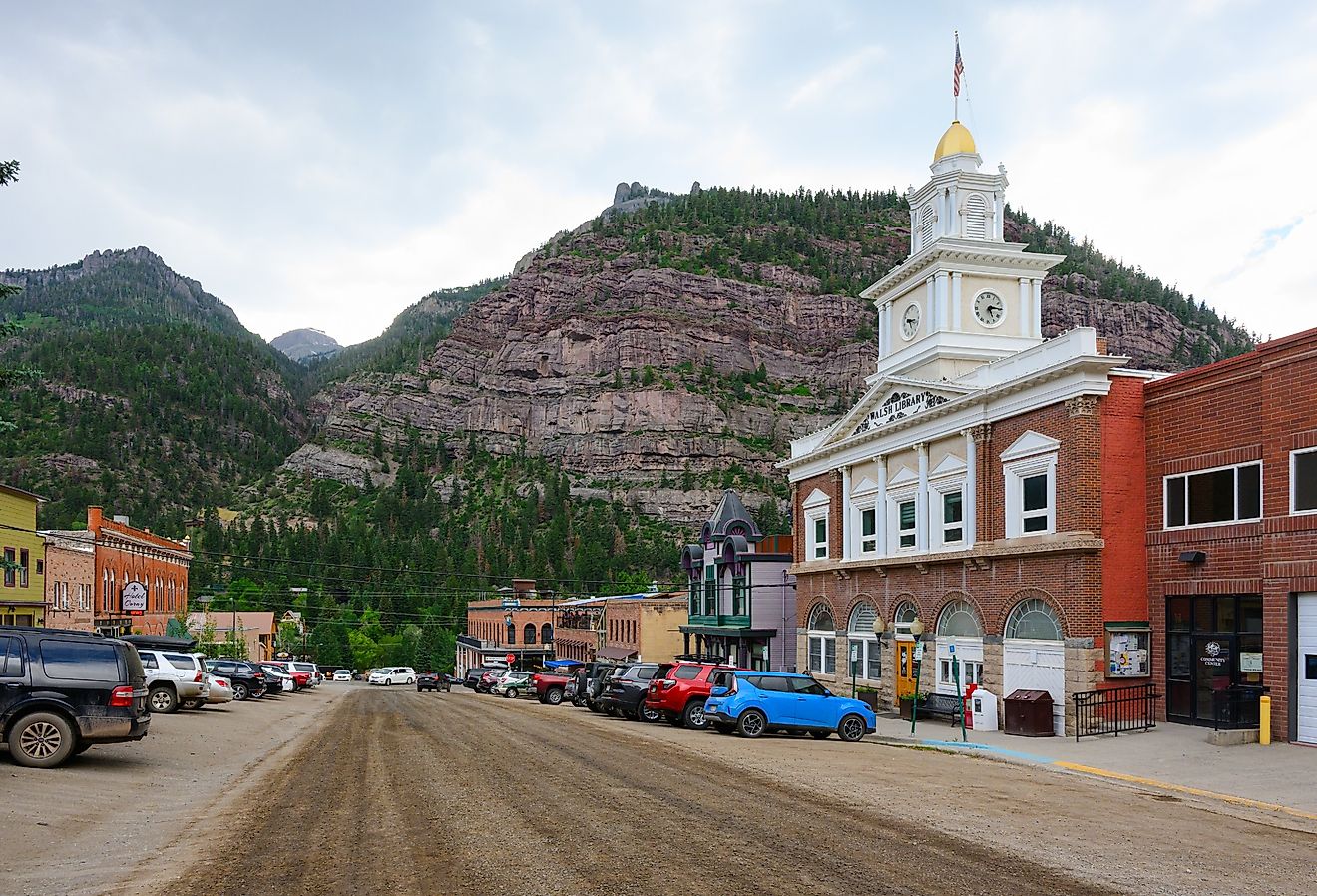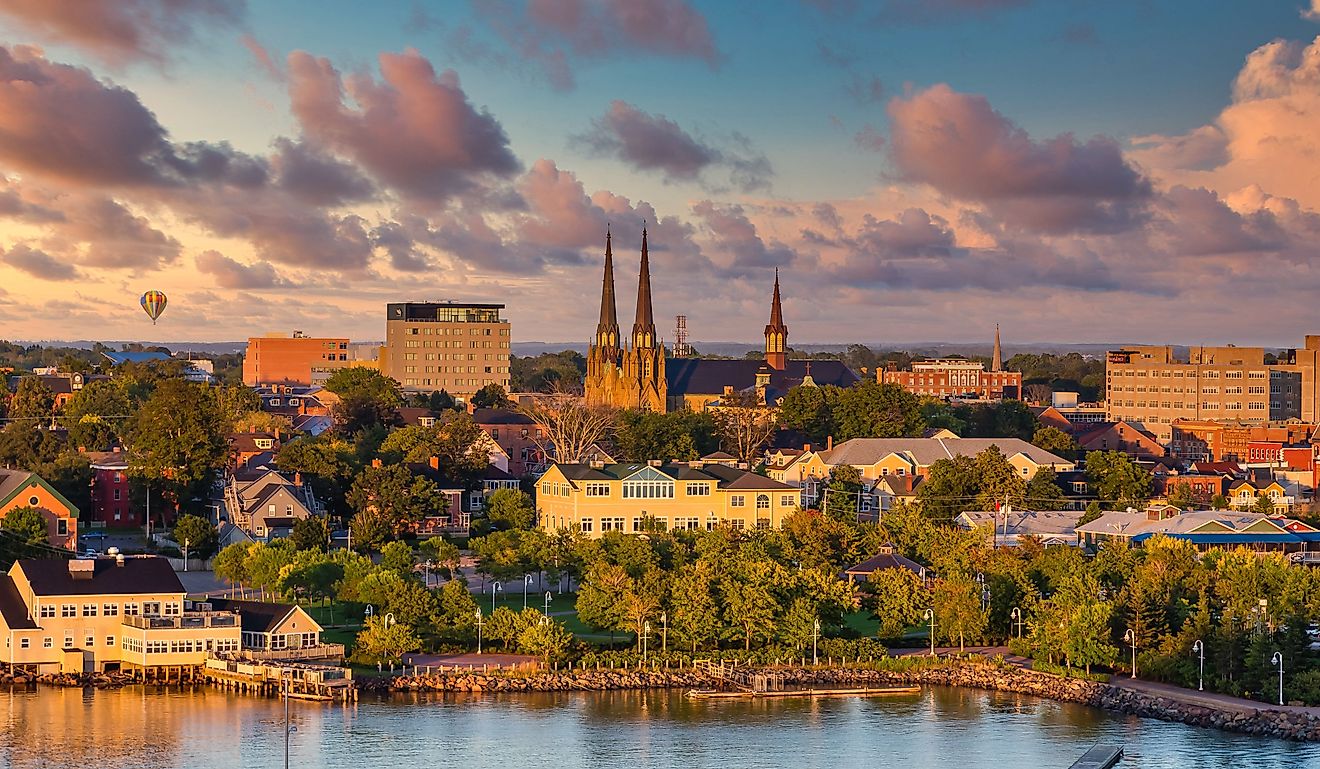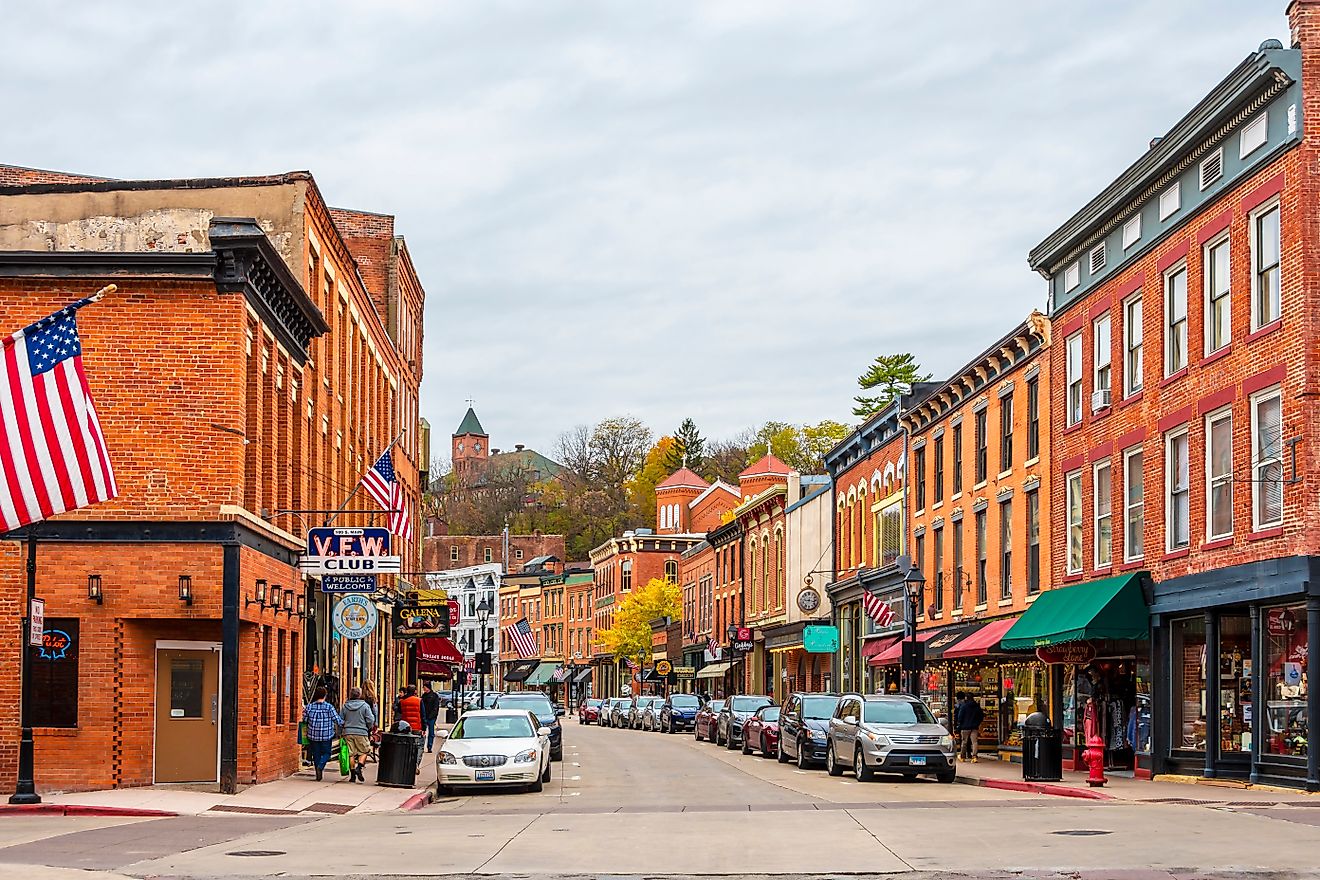
9 Adorable Small Towns In Massachusetts
Massachusetts was one of the most significant states during the early years of America's founding and one of New England's loveliest places. It prides itself in its diverse history, meaning there are plenty of historical sites to explore, including Edith Wharton's House and the Pilgrim Monument, which are well preserved and cared for today. Surrounding the legendary city of Boston are dozens of small towns, including Provincetown and Rockport, the location of early Pilgrim settlement. However, Massachusetts also contains 267 beaches, 48 State Parks, and 38 State Forests. There is so much to see and explore while enjoying the state's many quaint townships' rustic charm and beauty.
Stockbridge

Stockbridge began in 1737 when John Sergeant and Timothy Woodbridge established the first mission in the area. In 1739, the town was officially incorporated and was an essential Native American settlement in Massachusetts. Today, Stockbridge retains its old charm with several old homes, including the Inn at Stockbridge and the Wheatleigh home.
Traveling through Stockbridge is like walking through a picturebook town with well-preserved historic sites and plenty of natural charm. Stockbridge Bowl, a large lake in the north of the city, has much to share, including Kwuniikwat Island and Stockbridge Town Beach. Kwuniikwat Island is a great location to see blue herons, osprey, bald eagles, and Canadian geese.
Consider exploring the Inn at Stockbridge to learn about the land it sits on, with a history dating back to 1739. Check out one or more of the many other historic sites in town, including the Wheatleigh House and Highwood Manor. Both sites date back to the mid to late 1800s and were once home to prominent people in town.
Provincetown

Provincetown sits at the tip of the hook-like inlet stretching out from the coast of Massachusetts. It neighbors Cape Cod and touches Cape Cod Bay. It's a four-and-a-half-hour trip east from Stockbridge, with Stockbridge nearly touching the border of New York to the west. Provincetown has a fascinating history. Its colonial history dates back over 400 years when the Pilgrim's landed there in 1620. However, before colonial settlement, the southeastern region of Massachusetts was home to the Wampanoag tribe for over 12,000 years.
When traveling to Provincetown, it's essential to have plenty of time to explore the local wildlife and historic sites, including the Pilgrim Monument. The Pilgrim Monument is a well-known site for photography, but also be sure to stop by the museum nearby to learn all about this site's past significance and the people it represents. Not far from the monument and museum is Pilgrim's First Landing Park. This site is historically significant and grants a fantastic view of the bay. Other beautiful nature sites include Clapps Pond Wildlife Management Area and Herring Cove Beach.
Newburyport

Newburyport rests in the far northeastern corner of Massachusetts, just a few miles from 's border. Approximately three and a half hours north of Provincetown, Newburyport shares a rich and vibrant historical past that predates the arrival of the Pilgrims in the 1600s. Before the arrival of settlers in 1635 as part of the Newberry settlement, the area in and around today's town was home to the Pawtucket tribe.
The pristine city touches the Merrimack River and houses Plum Island to the east within its borders. Plum Island Beach and the Salisbury Beach Jetty are two of the most breathtaking sites of Plum Island. However, if you're not a fan of the sea, there's plenty to do inland. The Massachusetts Audobon Joppa Flats Educational Center sits in the southeastern part of town. It's the perfect place to learn all about the local wildlife, especially the many birds that call the woods their home. Morsley Woods is a lovely park, regardless of the season; however, the foliage is very vibrant in the fall. And Maudslay State Park is close by, making these sites a great day trip.
Rockport
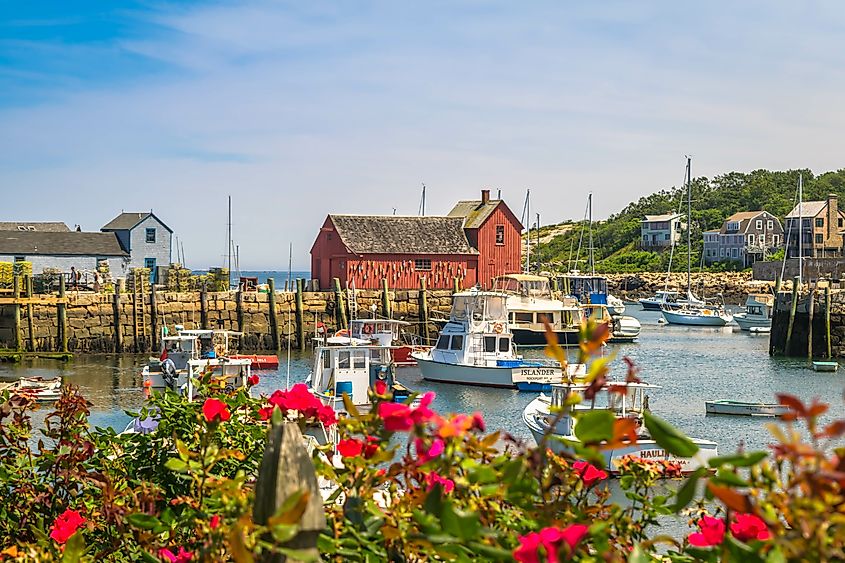
Rockport is just under an hour south of Newburyport, along Sandy Bay and the Atlantic Ocean. This small town traces its roots back to 1623, when settlers first arrived. However, the Agawam Indians called this land their home long before European arrival, and the original colonial settlement did not last. In the 1700s, after building a local granite dock, the town resurfaced, and colonies returned.
Rockport is a quiet and charming neighborhood with several attractive nature sites today. Halibut Point in the north of the city affords great views of the surrounding bay and surrounding woodlands with wildflowers and local vegetation. Pebble Beach in the city's south is perfect for beach combing and swimming when the weather permits. However, even if you visit in the fall or winter, you won't be disappointed exploring the shoreline for sea glass, smooth stones, and other treasures from the sea.
Lenox
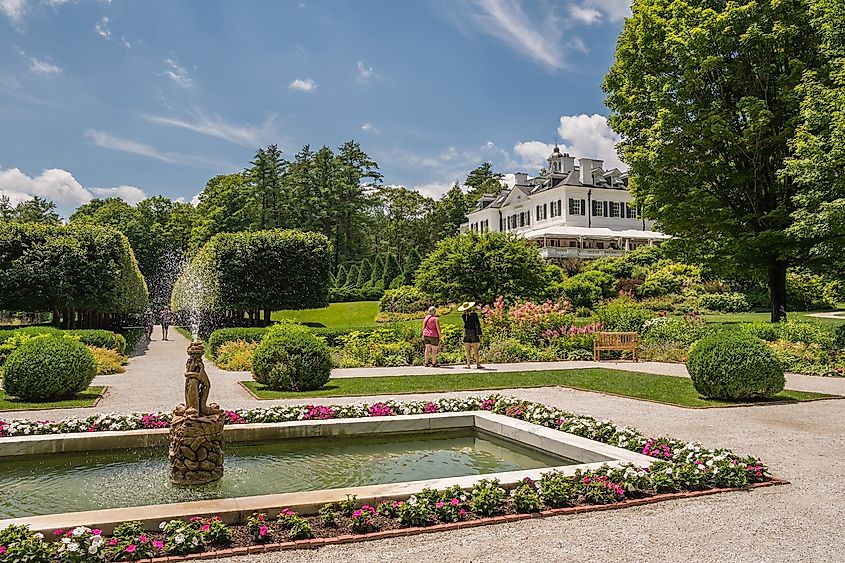
Lenox is a small city full of culture, including the Boston Symphony Orchestra, and was once home to a writer's colony in the 1800s. Colonists came to the area in the mid-1700s, with its original name being Yokunown. In 1767, the town held its first town hall meeting, primarily consisting of local farmers and laborers. The building and opening of Lenox Academy in 1803 marked a shift in the local culture and served as an excellent source for local education.
There's plenty to experience across the town, including George L. Darey Housatonic Valley Wildlife Management Area and the Berkshire Scenic Railway Museum - Lenox Station Museum. George L. Darey Housatonic Valley Wildlife Management Area is a great spot to visit in the Spring and Fall, with stunning views of the Housatonic River and woods. The Historic Railway Museum offers train rides on antique trains and houses some amazing artifacts, including historic train carts and luggage sections. The Edith Wharton Home and Kennedy Park are also worth visiting. The Edith Wharton Home is also known as "The Mount" and dates back to 1903 when the house was first built. They offer several tours, including house and ground tours.
Marblehead

Just south of Newburyport and northwest of Provincetown is Marblehead, another coastal community in Massachusetts. Marblehead has three harbors: the Little Harbor, Main Harbor, and Salem Harbor, contributing to the city's early economy and survival. English settlers arrived in the region around 1629 and set up a prominent settlement along the coast, where they mainly fished and grew crops.
Visitors can still visit many of the historic buildings throughout town, including the Old Town House in Town House Square. This lovely structure is well-maintained and dates back to 1727. There are plenty of parks and recreational areas in town as well, including Castle Rock Park, Goldthwait Reservation, and Wyman Woods. Castle Rock Park and Goldthwait Reservation are great spots to catch the sunset and walk along the seashore. Wyman Woods is an ideal place to go for a hike and enjoy the changing foliage or blossoming spring flowers.
Ipswich

Ipswich is a neighboring community to the lovely town of Rockport, located merely thirty minutes west. Local history dates back thousands of years before the arrival of colonists in the 1600s, with the Agawam tribe living in the area for thousands of years. In fact, when John Smith first drafted his map of New England, Ipswich was called Agawam. Unfortunately, disease decimated the tribe and left few remaining as the settlers established permanent residency there.
The city touches the Plum Island Sound, which is a beautiful body of water connected to the Atlantic Ocean. The community controls parts of Plum Island, which rests just east of the mainland across the Plum Island Sound. Several splendid hiking paths are here, including the scenic Stage Island Trail and Sandy Point State Reservation. These sites are excellent places to bird-watch for local fowl, including seagulls and terns.
However, guests should also ensure they visit the mainland, which is home to several gorgeous nature sites. The Great Marsh Area of Critical Environmental Concern is a must-see location for wildlife and natural habitats. This site sits on 25,000 acres of protected land that's home to over 60 bird species, including the Least Tern and Seaside Sparrow.
Falmouth

Falmouth is a lovely, rustic community just a few miles across the water from Martha's Vinyard and Naushon Island in southern Massachusetts. The history of Falmouth dates back to around 1660, with 1686 being its official date of incorporation. Settlers mainly survived through fishing and agriculture, with these industries serving as the main driving force behind the local economy for many years. Great Pond and Long Pond are both excellent places for sightseeing and exploration. Other beautiful sights include Frances A. Crane Wildlife Management Area and Anna Gordon Moraine Trail. Check these sites out for excellent hiking and to see 20 endangered and threatened species.
There are also several lovely beaches in Falmouth, like Menauhant and Chapoquoit Beach. If you like fishing and beachcombing in nature, these shores are perfect. Also, stop by the Nobska Lighthouse in the south of the city. The Nobska Lighthouse dates back to 1829 and is a superb historical location along the coast of the Atlantic Ocean.
Gloucester

Gloucester rests in northeastern Massachusetts, touches Rockport to the east, and sits two hours north of Falmouth. While settlements in the area began in the 1620s but were not permanently established until 1646. Its location along the coast made it ideal for fishing, and the surrounding oceans were once whaling sites.
While people no longer whale in Massachusetts, there is plenty of whale watching in the many ports and inlets in the area. Gloucester is home to two principal whale breeding grounds, Stellwagen Bank and Jeffrey's Ledge. If you plan to stay in town for a few days and want to get the best immersion experience in nature, consider camping at Cape Ann Camp Site. Hammond Castle Museum is one of the most beautiful structures in town, dating back to its building in the 1920s. It's a place of intrigue and magic, so if you enjoy an adventure in a truly marvelous stone structure, then Hammond Castle Museum is ideal.
Most assume Massachusetts is stuck in the past, thanks to its reputation as the landing site of the Pilgrims. While the state honors and preserves its incredible past, it is by no means trapped in the past. Many of the state parks and forests are protected by state law in their attempt to mitigate climate change and preserve the natural world. Despite the many large cities within its borders, it remains one of the greenest and most vibrant states in the United States. Traveling to Massachusetts is the best way to understand the nation's past and see where the future leads. And the small, close-knit communities of the state lead the way through their welcoming natures and open-mindedness.
